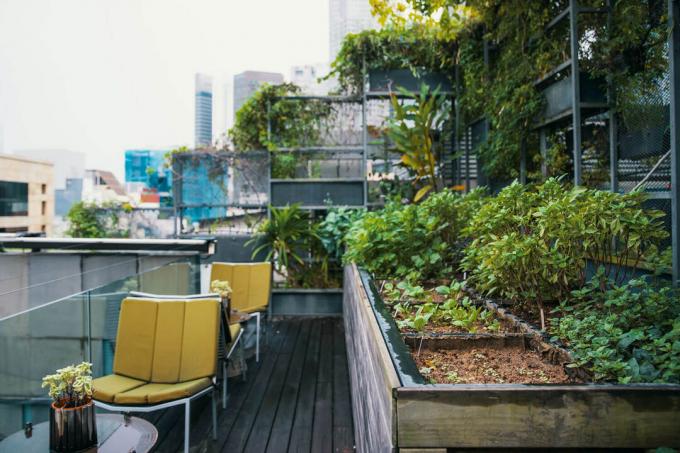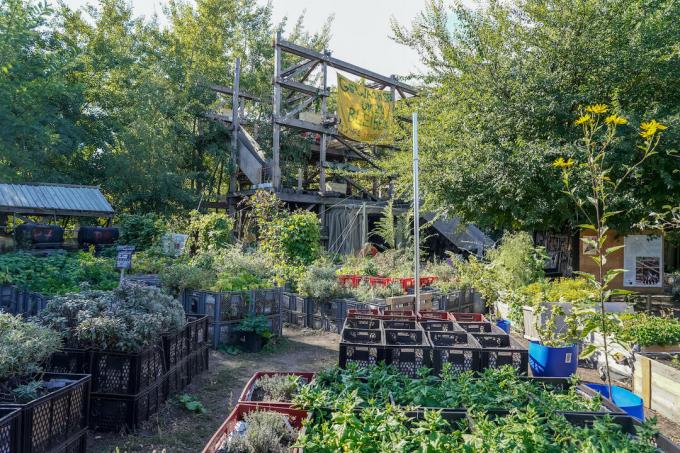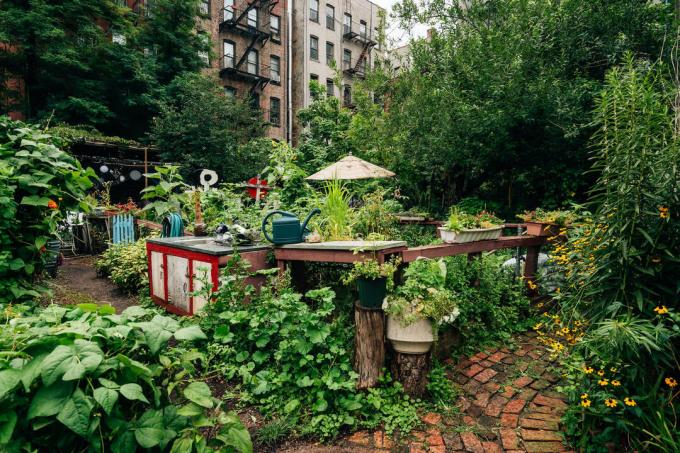urban agriculture urban farming) is currently on everyone's lips. We show what is behind the term and present example projects.

Agriculture is finding its way back into our cities - you can experience that by looking at the many projects and initiatives in Germany and other countries. However, urban agriculture is not a new invention: until the 19th century In the 19th century, growing crops was common within cities, until human labor was replaced by machines and agriculture disappeared from cities. Allotment gardens, which have existed since the 19th Century in Germany, point to a human need for nature also within urban areas. But what does the term “urban agriculture” actually mean? And what is the difference to "Urban Gardening"?
contents
- Urban Agriculture = Urban Gardening? – Some definitions of terms
- Why Urban Farming?
-
Examples of urban agriculture
- Urban farming in Berlin
- “Edible City” Andernach
- Aquaponics in the capital
Urban Agriculture = Urban Gardening? – Some definitions of terms
From urban agriculture urban farming) is used when free areas within cities are used to grow crops or ornamental plants. This includes vegetable, fruit, flower, or herb gardens, the produce of which is predominantly used (or marketed, depending on the aspiration) within the city. The term "urban gardening" seems confusing at first, as it is often used as an English synonym for urban agriculture. In fact, there is no clear definition of the two terms, but "urban gardening" tends to refer to the cultivation of vegetables for personal use.

Why Urban Farming?
There are different reasons and motivations that move people to "Urban Farming": These include ecological reasons such as the rejection of pesticides on vegetables and fruit or the need to grow their own food respectively. The desire to make the urban space more beautiful or the economic gain through the sale of food can also be motives. However, one thing can be observed for sure: urban agriculture is currently particularly popular due to the increasing awareness of healthy nutrition, the environment and sustainability.

Examples of urban agriculture
The spectrum of types of "urban farming" is wide and always showing new forms. For many, gardening is limited to their own balcony, but the entire cityscape is changed by the creativity of others: on old ones Industrial crops are cultivated, roofs become gardens, fish farming and crops are cultivated in the so-called "aquaponics" tied together. A lack of space often results in one vertical farming: With this concept, the plants are planted vertically (e.g. on house facades) on buildings or devices. Another interesting concept is the so-called “guerrilla gardening”. These are campaigns in which small gardens are planted in public areas without the permission of the city.

The following projects show how and where urban agriculture has already been successfully implemented in Germany:
Urban farming in Berlin
The Princess Garden in Berlin illustrates the strong communal character of "Urban Farming": On an area of almost 6000 square meters, a disused fallow area was recultivated in the Berlin district of Kreuzberg-Friedrichshain and has been used as a public one since 2009 Garden. The plants are grown in boxes because they can be transported more easily. Anyone can take part in the Prinzessinnengarten. There are no private beds and any enthusiastic fellow gardener is welcome to support the project. A wide variety of vegetables are grown, many of which are old and rare varieties. The site also has its own apiary.

“Edible City” Andernach
The Rhineland-Palatinate municipality of Andernach supports the return of crops to public land with its public harvest project. For several years, citizens have had the opportunity to plant vegetables, fruit and herbs in various places in the city. The motto is: "Picking allowed" instead of "Entering prohibited". The idea behind it is to make public spaces more attractive and to strengthen the connection to nature and seasonal products. Particular attention is paid to the protection of regional and rare plants.

Aquaponics in the capital
Aquaponics is a concept in which fish farming in ponds and the cultivation of crops in greenhouses are sensibly combined in cities. A company in Berlin-Schoenefeld provides an interesting example of successful implementation. Perch are bred in ponds. The nutrient-rich water from the ponds is still used as fertilizer for the crops, thus avoiding the use of other raw materials to supply the plants. For example, herbs, lettuce or tomatoes are grown. Both the fish and the vegetables are marketed regionally.

All of these examples of successful urban agriculture projects illustrate the potential of this trend. It is to be hoped that further initiatives will be established in the coming years that will bring gardening to the heart of our big cities.
Small-scale urban agriculture can also be practiced on the balcony. In this article you will learn which plants for your Self catering balcony are suitable.
...and receive concentrated plant knowledge and inspiration directly in your e-mail inbox every Sunday!
